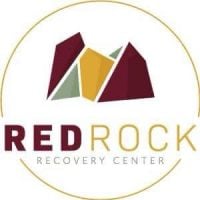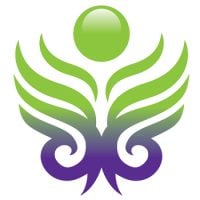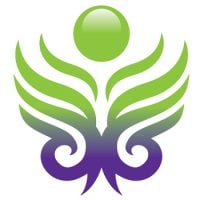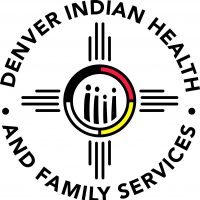Whitian House
Drug Rehab Center in Littleton, Colorado
Whitian House in Littleton, Colorado is a gender-specific residential facility that provides help for individuals struggling with addiction and substance abuse, offering a safe and supportive environment, individualized treatment plans, and dual diagnosis services, licensed and accredited by the Colorado Department of Human Services.
About Whitian House in Colorado
Whitian House is located in Littleton, CO, and operates as a state-licensed outpatient treatment agency focused on substance abuse and mental health issues. They offer a diverse range of therapies, including domestic violence treatment, DUI education, Dialectical Behavioral Therapy, and programs for life after gangs. What sets Whitian House apart is its comprehensive approach to treating various issues under one roof.
Accredited by the State License, Whitian House emphasizes quality and safety in its treatment methodologies. With locations in Lakewood and Denver, CO, they cater to a broad spectrum of needs with personalized, holistic recovery plans, leveraging their highly qualified clinical director, Whitney Post’s expertise, and a multi-disciplinary team.
- Specializes in both substance abuse and mental health treatment, providing a holistic approach to recovery.
- Offers gender-specific trauma group therapy and a unique Life After Gangs group therapy, catering to specific needs and backgrounds.
- Emphasizes the use of Dialectical Behavioral Therapy and Relapse Prevention Skills to aid in long-term recovery.
Whitian House is adept at handling issues related to Alcoholism, Opioid Addiction, Dual Diagnosis, Substance Abuse, and Mental Health disorders. Their treatment methods include a mix of general and specialized therapies, offering levels of care ranging from Intensive Outpatient programs to Aftercare Support, ensuring a tailored recovery journey for each client.
Genders
Ages
Modality
Additional
Accreditations
State License
Conditions and Issues Treated
Substance abuse is the excessive use of any drug. This includes alcohol, medications, and illegal drugs. Substance abuse is treated with a combination of physical and mental treatments. Patients detox and follow up with therapies that target the underlying cause of the addiction. Substance abuse is a severe problem that can be successfully treated with a variety of therapies. Whitian House treatment uses a combination of therapies along with other resources to overcome substance abuse.
Opioid addiction treatment should be done in a medically supervised drug rehab. While taking opioids, users will typically use other substances to enhance the effects of opioids or to reduce the adverse effects of opioid use. Opioid addiction treatment will include detoxification and drug rehab counseling to help both the user and their loved ones learn how to live a successful sober lifestyle.
Treatments such as methadone, buprenorphine, and naltrexone are three medications that can help treat opioid addiction. These drugs work on the brain’s pleasure center and reduce cravings and the effects of illicit opioids such as heroin. These drugs can be either given orally or by injection. Individual drug rehab counseling sessions can be helpful to discuss any questions or concerns with the drug treatment program. This counseling will also help the user set goals for when they finish drug rehab.
Opioid addiction recovery is a long process. Many of the changes to the brain caused by opioid use cannot be undone, but with time and the proper treatment, a person can return to normal function. After detox, treatment will include drug rehab counseling and entering a halfway house or sober living community. Aftercare is critical to long-term recovery, as it helps the user avoid relapsing and entering back into drug rehab.
Levels of Care Offered
This center offers a variety of custom treatment tailored to individual recovery. Currently available are Detox, Drug Rehab, Dual-Diagnosis, Intensive Outpatient, Outpatient, with additional therapies available as listed below.
An addict may have to go through alcohol or drug withdrawal. While detox may be uncomfortable, it is not life-threatening. Detoxification allows the addict to rid the body of all traces of drugs or alcohol and gives the addict a clean slate for their recovery. In an inpatient or outpatient setting, detox can be managed medically.
Intensive outpatient treatment is a type of comprehensive addiction care. Unlike conventional residential treatment programs, the patients live at home during the recovery process. This means that one can continue working and caring for their families. These also allow people to keep pursuing their studies while also working on their sobriety.
Outpatient treatment can help one transition to normal life from the round-the-clock supervision and treatment available during inpatient treatment. It is an excellent tool to ensure long-term recovery. However, it is essential to note that intensive outpatient treatment in itself does not remove patients from the real-world setting. This means there’s always a higher risk of coming across environmental triggers. To further prevent relapse, an outpatient treatment center should be able to provide ongoing support services.
Once the patient is enrolled in an intensive outpatient treatment program, they will be expected to attend therapy and group meetings daily for a stipulated period. The frequency and duration of each session will depend on the patient’s needs and level of addiction. This can help curb the habit and deal with underlying issues that led to it. Most of these professional treatments are designed to allow patients to structure their daily schedules in a way that is conducive to recovery.
“Outpatient treatment is ideal for those who have a lower intensity addiction. It’s also suitable for those with a supportive environment and those on a tight budget.
Outpatient treatment can be considered the lowest intensity level of addiction treatment. It is ideal for early phase addiction or lower intensity addictions. It may involve weekly sessions instead of daily. Peer group support, 12-step programs, and individual counseling may still be used and anti-addiction medication.
Therapies & Programs
Group therapy is held in a safe, controlled setting where patients can feel comfortable sharing their struggles and gaining perspective through shared conversations. It takes place in a group rather than one on one to prevent feelings of isolation or being unique in their situation while creating an environment for addicts at Whitian House to develop fellowship, accountability, and support. Group therapy is an important tool in recovery that prevents cravings that prompt a return to active addiction.
This type of therapy involves the use of a variety of therapeutic techniques to help addicts recover from past traumas that might have triggered their substance abuse. During these sessions, therapists will work with the addict to address painful memories and learn how to cope effectively with stressors as they arise.
During these types of sessions, therapists will typically focus on three main goals:
- Identifying and expressing painful emotions associated with past traumas.
- Reducing the effects of stress on an addict’s life by developing more effective coping mechanisms.
- Developing healthy ways of thinking about stressful situations that can help addicts avoid substance abuse issues in the future.
This type of therapy is typically used in conjunction with other types of addiction treatment services. By identifying and dealing with the root cause of addiction, most addicts can overcome their cravings and prevent relapse once they leave rehab.
Many different types of addiction treatment services exist to help addicts safely get sober, but it’s important for recovering individuals to find a therapist or support group that will help them address the root cause of their addiction.
Payment Options Accepted
For specific insurance or payment methods please contact us.
Additional Details
Specifics, location, and helpful extra information.
Littleton, Colorado 80215 Phone Number(303) 918-0880 Meta DetailsUpdated April 15, 2024
Staff Verified
Whitian House Patient Reviews
There are no reviews yet. Be the first one to write one.
Littleton, Colorado Addiction Information
The Centennial State has slipped to a ranking of 12th in the country for drug abuse. Each year around 24% of the state's population uses illegal drugs while nearly 5% of its population abuses alcohol. Substance-related deaths in Colorado were responsible for 15.12% between 2008 and 2017. Fortunately, Colorado drug and alcohol addiction treatment are available to help a person overcome addiction.
In 2017, there were 479 reported drug abuse cases in Littleton, CO. About 9% of the population is addicted to drugs. Littleton's most commonly abused drugs include marijuana, prescription painkillers, and cocaine. High rates of drug addiction have led to increased crime rates and decreased quality of life. Patients and their families can be a good source of information about the quality of care at a treatment facility.
Treatment in Nearby Cities
- La Jara, CO (176.8 mi.)
- Crested Butte, CO (117.8 mi.)
- Boulder, CO (21.2 mi.)
- Castle Rock, CO (28.4 mi.)
- Ignacio, CO (227.7 mi.)
Centers near Whitian House
The facility name, logo and brand are the property and registered trademarks of Whitian House, and are being used for identification and informational purposes only. Use of these names, logos and brands shall not imply endorsement. RehabNow.org is not affiliated with or sponsored by Whitian House.









